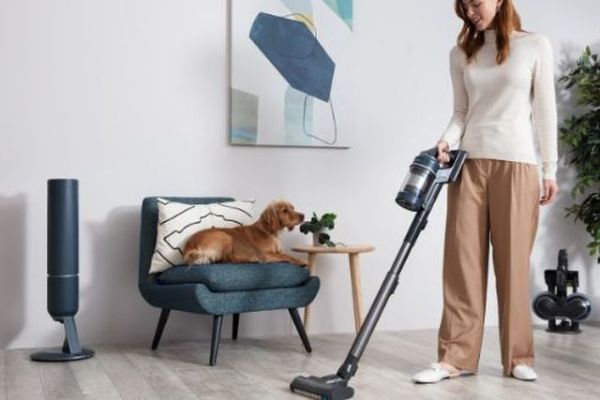Investing in a reliable vacuum cleaner is essential for maintaining a clean and healthy home. However, with numerous options available in the market, it’s crucial to consider the lifespan of a vacuum cleaner before making a purchase.
In this article, we’ll explore the factors that determine the longevity of a vacuum cleaner and provide insights to help you understand how many years you can expect your vacuum cleaner to last.

Table of Contents
Factors Affecting Vacuum Cleaner Lifespan
Several key factors influence the lifespan of a vacuum cleaner. By considering these factors, you can make an informed decision and select a vacuum cleaner that provides lasting performance:
Build Quality and Durability
The construction and build quality of a vacuum cleaner significantly impact its longevity. Look for models made with high-quality materials and durable components that can withstand regular use and potential bumps and knocks. Vacuum cleaners with sturdy bodies and reliable parts tend to have a longer lifespan.
Maintenance and Care
Proper maintenance and care are vital for prolonging the lifespan of your vacuum cleaner. Regularly cleaning the dustbin, filters, and brushes, as well as emptying the canister or changing the bags, can prevent clogs and ensure optimal performance. Following the manufacturer’s guidelines for maintenance and storage will help extend the life of your vacuum cleaner.
Usage Patterns
The frequency and intensity of usage play a significant role in a vacuum cleaner’s lifespan. If you have a large home with numerous rooms and high foot traffic, you may use your vacuum cleaner more frequently, potentially shortening its lifespan. Similarly, if you have pets or children, your vacuum cleaner may be subjected to more demanding cleaning tasks. Choosing a vacuum cleaner designed for heavy-duty use can help ensure a longer lifespan.
Type of Flooring and Cleaning Environment
The type of flooring in your home and the cleaning environment can affect the longevity of your vacuum cleaner. Different vacuum cleaners are designed for specific floor types, such as carpets, hardwood, or tiles. Using a vacuum cleaner that is well-suited to your flooring can prevent excessive strain on the machine and contribute to its longevity. Additionally, vacuuming in environments with excessive dirt, debris, or moisture may cause premature wear and tear on the vacuum cleaner.
Average Lifespan of Vacuum Cleaners
While the lifespan of a vacuum cleaner varies depending on the factors mentioned above, here are some general guidelines for different types of vacuum cleaners:
- Upright Vacuum Cleaners: On average, a well-maintained upright vacuum cleaner can last anywhere from 5 to 10 years. However, some high-quality models may even last longer with proper care.
- Canister Vacuum Cleaners: Canister vacuum cleaners are known for their durability. With regular maintenance and careful usage, a canister vacuum cleaner can last around 8 to 12 years or more.
- Stick and Handheld Vacuum Cleaners: Stick and handheld vacuum cleaners are often more lightweight and compact. While their lifespan can vary, a good-quality stick or handheld vacuum cleaner can last between 3 to 7 years.
Extending the Lifespan of Your Vacuum Cleaner
To maximize the lifespan of your vacuum cleaner, consider the following tips:
- Regular Maintenance: Clean the dustbin, filters, and brushes frequently, and replace worn-out parts promptly.
- Proper Storage: Store your vacuum cleaner in a clean and dry area, away from moisture or extreme temperatures.
- Follow Manufacturer Guidelines: Adhere to the manufacturer’s recommendations for maintenance, cleaning, and usage.
- Avoid Overloading: Do not push your vacuum cleaner beyond its limitations, such as using it to pick up large debris or liquids.
- Use the Right Attachments: Use the appropriate attachments and accessories for different surfaces and cleaning tasks to prevent unnecessary strain on the machine.
—
The lifespan of a vacuum cleaner depends on various factors, including build quality, maintenance, usage patterns, and cleaning environment. By selecting a vacuum cleaner made with durable materials, following proper maintenance practices, and considering your specific cleaning needs, you can expect your vacuum cleaner to last for several years.
Remember to choose a vacuum cleaner that suits your lifestyle and requirements, and be diligent in maintaining and caring for it. With the right approach, your vacuum cleaner will continue to serve as a reliable cleaning companion, ensuring a clean and healthy home for years to come.
